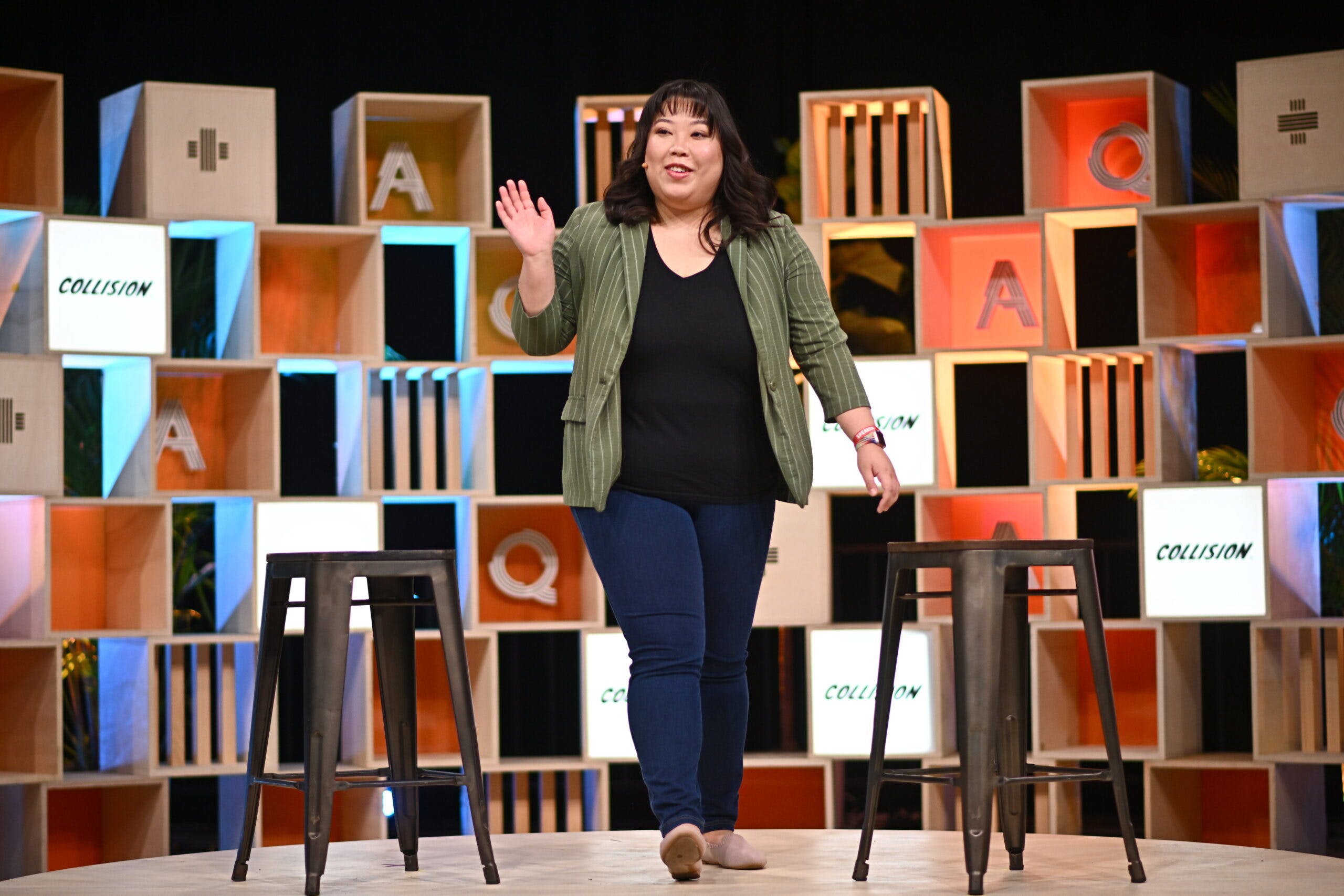
Why recycling is not the answer to our plastic epidemic
Why is the fight against plastic pollution more urgent than ever? And why isn’t recycling a solution? Pl...
Collision 2023 marked an historic year for us. Our Toronto event gathered more than 36,000 attendees from 118 countries to connect, make deals, and network long into the night. Check out some of the environmental talks that took place at Collision 2023.
According to Indigenous rights and water activist Autumn Peltier, Mother Earth is hurting right now. “If we look around, we can see it.”
The activist thinks that the word ‘sustainability’ has been bandied around too lightly lately, with not enough action backing it up to achieve what the planet needs.
“I’m not an 18-year-old interested in TikTok trends. I’m interested in a better tomorrow for those behind us,” said Autumn.
Reflecting on what message would best resonate with “thousands of fresh thinkers”, Autumn believes that, although technology can help, true sustainability begins with listening to Indigenous voices who have generations of knowledge of their land.
The activist’s great-aunt, Josephine, “spent her life protecting the water” before passing knowledge on to Autumn, who laid down the gauntlet to the Collision audience: “I hope you leave today with action in your hearts. In a room full of people, it only takes one to influence change – what if that one person is you?”
There are more than 100 startups working on plant-based chicken nuggets and burgers right now. Such a saturated market is not sustainable, and there’s going to be a shake out. So said Kimberlie Le, co-founder and CEO of Prime Roots.
Prime Roots also creates plant-based products, but the difference is that its items are ‘deli meat’. Why is this significant? Sandwiches are the most popular foodstuff in the US, with 300 million consumed every single day.
 Kimberlie Le, Primo Roots, on Q&A stage during day two of Collision 2023. Image: Ramsey Cardy/Web Summit (CC BY 2.0)
Kimberlie Le, Primo Roots, on Q&A stage during day two of Collision 2023. Image: Ramsey Cardy/Web Summit (CC BY 2.0)
If delis can be convinced to stock plant-based alternatives, it could make a huge impact on sustainable food production, reasons Kimberlie, who sees animals as “outdated technology”.
Prime Roots aims its products at meat eaters. The ‘meat’ is koji, a fungus with the same microscopic texture of real meat and a similar umami.
“If you’re trying to make beef from a cow, you’re feeding that cow about 40 calories of input just to get one calorie of beef,” said Kimberlie. “That’s 39 calories of perfectly good food wasted on the metabolic processes of a cow.”
“We’re going to be 100 percent renewable energy across all of Amazon, including AWS, by 2025.”
That’s according to Adam Selipsky, CEO of AWS (Amazon Web Services), who added that his company is “already 85 percent of the way there”.
Considering the number of data facilities AWS operates around the world, those figures are quite the claim.
Adam noted that the company’s accomplishments lie in their attention to the needs of users, rather than in profit margins:
“I never want us to be worried about our revenue streams and worried about safeguarding what we have at Amazon. So we are always laser focused on working backwards from the customer and being customer obsessed.
“We always want to act with the nimbleness of a startup.”
Main image of Autumn Peltier, Indigenous Rights & Water Activist on Planet Tech Stage during day two of Collision 2023: Vaughn Ridley//Web Summit (CC BY 2.0)

Why is the fight against plastic pollution more urgent than ever? And why isn’t recycling a solution? Pl...
Meet four of our community partners that are tackling climate ch...